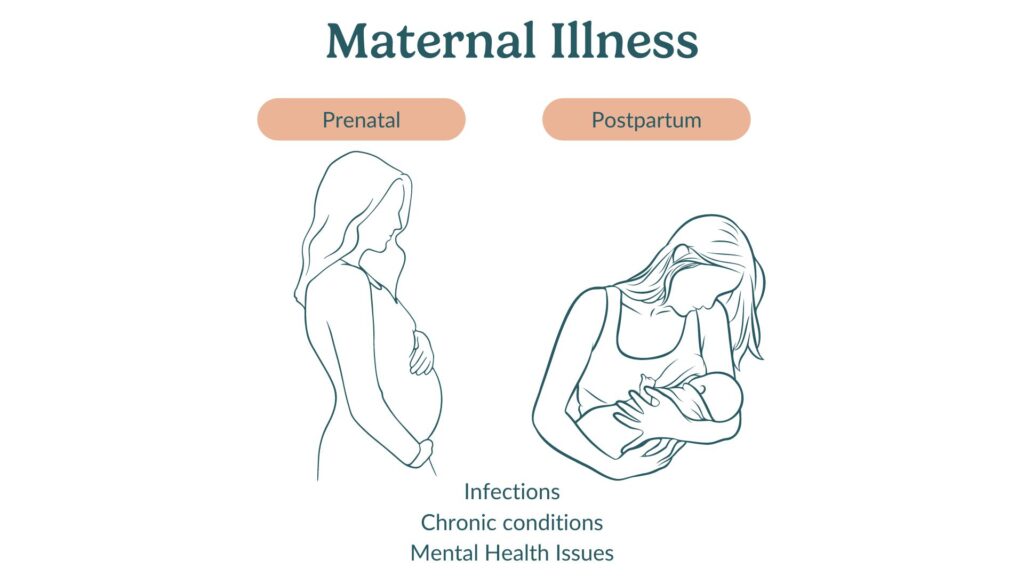maternal illness

Maternal illness
Maternal illness refers to any health condition that affects a mama during pregnancy or the postpartum period. These illnesses can range from mild infections to chronic conditions and can impact both the mama and the baby.
What to watch out for
It’s important to recognize the signs of maternal illness and understand how to manage it. Here are some common conditions and tips:
- Infections: Symptoms such as fever, chills, fatigue, and localized pain may indicate an infection. Common infections include mastitis, urinary tract infections (UTIs), and postpartum infections.
- Chronic conditions: Conditions like diabetes, hypertension, and thyroid disorders require ongoing management and monitoring during pregnancy and postpartum.
- Mental health issues: Depression, anxiety, and postpartum depression are serious conditions that require prompt attention and treatment.
To manage maternal illness, consider these tips:
- Seek medical advice: Always consult with your healthcare provider if you suspect an illness or have concerns about your health.
- Follow treatment plans: Adhere to prescribed treatments and medications to manage your condition effectively. Discuss any potential impacts on breastfeeding with your provider.
- Rest and self-care: Ensure you get enough rest and take time for self-care to support your recovery and overall health.
- Monitor your baby: Watch for any signs of illness or changes in your baby’s behavior that might indicate they are affected by your condition or treatment.
Physical limitations or health circumstances
Certain conditions can increase the likelihood of complications due to maternal illness:
- Chronic illnesses: Ongoing conditions such as diabetes or hypertension require careful management to prevent complications.
- Postpartum complications: Issues like heavy bleeding, infections, or surgical recovery (e.g., from a C-section) can impact your health and ability to care for your baby.
- Mental health disorders: Conditions like postpartum depression or anxiety require prompt treatment to ensure both your well-being and your baby’s health.
Other terms
Understanding related terms can help you better manage maternal illness and related challenges:
- Mastitis: An infection of the breast tissue that can cause pain, swelling, and flu-like symptoms. For more information, visit Mastitis Management.
- Postpartum depression: A severe and long-lasting form of depression that occurs after childbirth and requires treatment. Learn more at Postpartum Depression.
- Chronic conditions: Long-term health issues such as diabetes or hypertension that need ongoing management.
- Self-care: Activities and practices that help you maintain your health and well-being, such as rest, nutrition, and relaxation.
- Support system: Family, friends, and professionals who can provide emotional and practical support during the postpartum period.
Knowing these terms and how they relate to maternal illness can help you address challenges more effectively. If you have concerns or questions, consulting a healthcare provider can provide valuable support.
Breastfeeding-related information
- Breastfeeding with chronic conditions: Conditions like hypothyroidism or Hashimoto's Thyroiditis can affect milk supply. Regular monitoring and consultation with an IBCLC can help manage these challenges. For more details, visit Breastfeeding with Hypothyroidism and Breastfeeding with Hashimoto's Thyroiditis.
- Nipple care: We advise against using lanolin-based creams; use “nipple balms” instead. For product recommendations, check out Organic Nipple Balm.
- Breastfeeding when sick: Continue breastfeeding if you are sick, as breastmilk provides antibodies to your baby. For more information, visit Breastfeeding When Sick.


